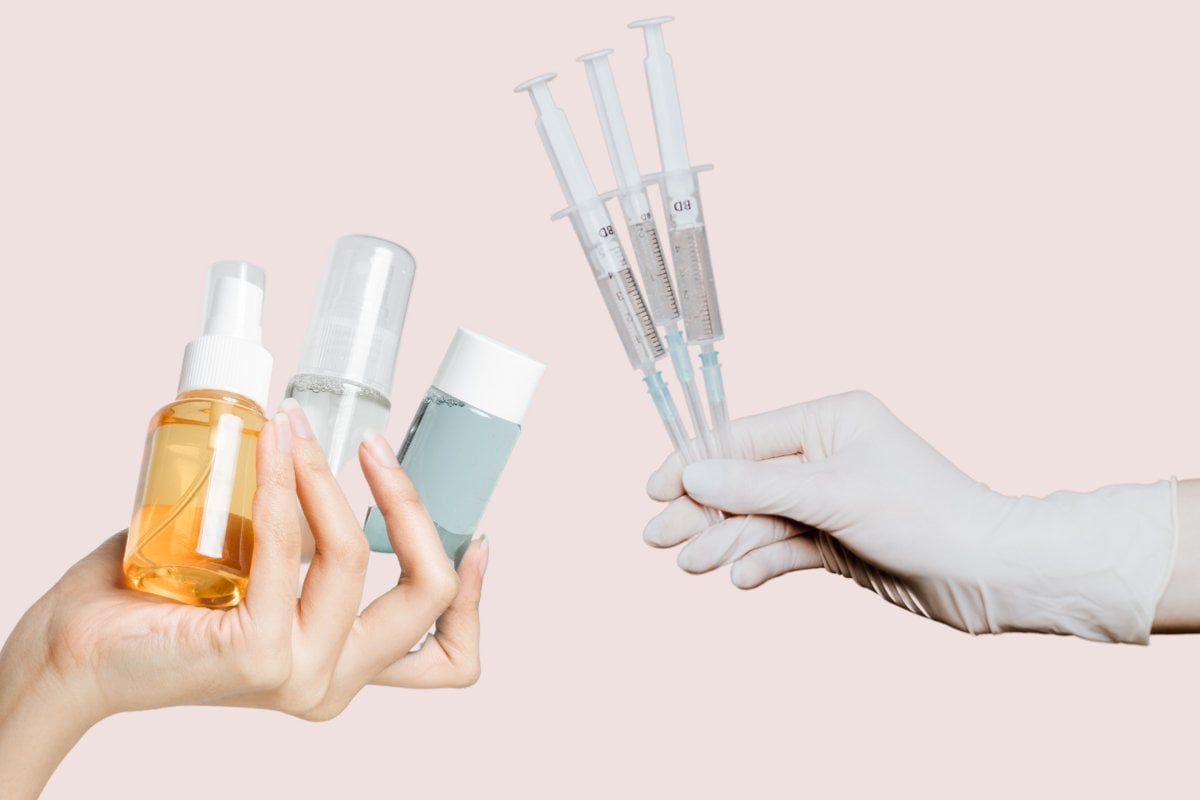
If you're a dame who likes to dabble in skin things, chances are you'll feel that when it comes to all different professional treatments and facial procedures out there, things can get pretty confusing.
Whether we're talking medical skincare, anti-wrinkle injections, fillers or everything in between - it may all seem a little overwhelming.
And we're right there with you.
Watch: I asked "The Doll Maker" what she'd do to my face. Post continues below.
That's why we've had a chat with some experts about what we should know - specifically when when it comes to prescription skincare and cosmetic procedures.
Cause these areas of beauty are absolutely BOOMING, but there are some pretty crucial things you should be asking before undergoing any kind of facial treatment or procedure.
To save you the hassle, we've pulled some of the most important questions into a big ol' article.
So, please - grab your notepad and let's make a start, shall we?
What to know before starting medical skincare.
If you consider yourself a bit of a beauty afficionado, chances are you've heard of 'medical skincare' or 'prescription skincare'. It's everywhere right now.